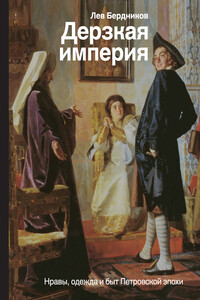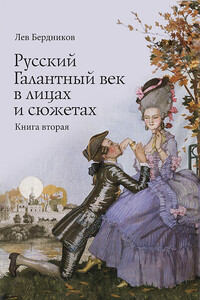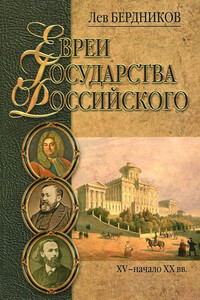Евреи в царской России. Сыны или пасынки? | страница 8
A notice in the newspaper «Veche» on the death of Gregory Yollos ended with the words «One less zhid». This represents one extreme and tragic model of the life of Russian Jews. But even if a violent death is not necessarily universal Jewish destiny, any Jew in Russia felt her or himself a stepchild to one degree or another. Berdnikov writes about this a lot, but the main focus of his biographies is on something else – on Jews as «children of Russia», on their tremendous, remarkable contributions – often putting their lives on the line – that Jews made to the life of Russia in various fields. Knowledge of this history reinforces mutual understanding between Russians and Jews, strengthening and celebrating the «Russian-Jewish» cultural atmosphere, which hardly has an analogue elsewhere in the world. And this, in addition to its educational function, represents the great humanistic power of Berdnikov's book.
Russia is a multiethnic, multinational country. Since ancient times many national communities have worked to the benefit of Russia. One may list many hundreds of Armenians, Georgians, Ossetians, Ukrainians, and many, many, others, who can be called true sons of Russia. All of them deserve to be recorded in history, so that the general reader may become aware of the glorious pages from the life of national communities in Russia. Unfortunately, such books are very rare. Lev Berdnikov's informative and engaging book is a shining example of how to preserve this memory of our past.
Yuri Tabak (translated by M. Levitt)
I. Евреи под монаршей порфирой
Гонитель поневоле Иван III
Собиратель Руси, державный великий князь Иван Васильевич привечал в своем Отечестве и иудеев. Им было дозволено «торговлю чинить» и беспрепятственно колесить по городам и весям Московии. Повсюду можно было заприметить еврейские повозки, обтянутые парусиной. «Высокие, худощавые лошади нерусской породы, – живописал в историческом романе «Басурман» Иван Лажечников, – казавшиеся еще выше от огромных хомутин, испещренных медными полумесяцами, звездами и яблоками, давали знать о мере своего хода чудным строем побрякушек такого же металла. На передках сидели большею частью жиды… В тогдашнее время не было выгодной должности, которую не брали бы на себя потомки Иудины. Они мастерски управляли бичом и кадуцеем, головой и языком… Во Пскове, в Новгороде и Москве шныряли евреи-суконники, извозчики, толмачи, сектаторы и послы…. В авангарде, из под общипанного малахая и засаленного тулупа торчала, как флюгер, остроконечная бородка и развевались пейсики, опушенные морозом».






